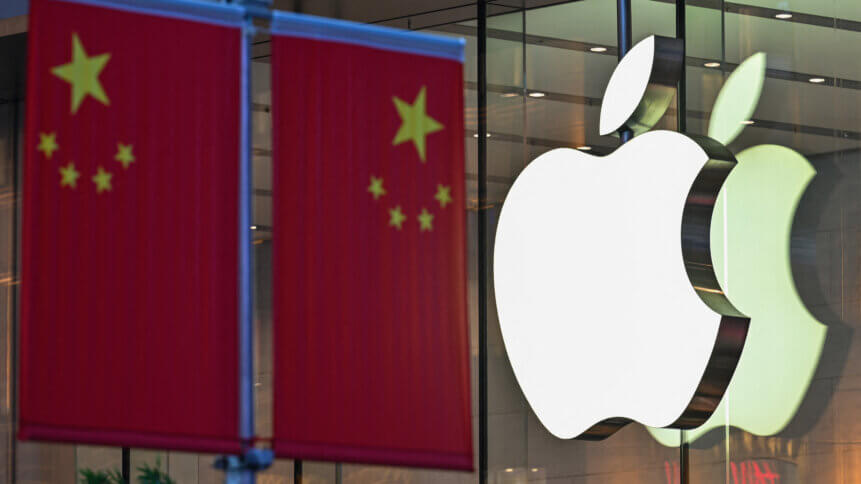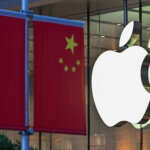Apple is putting its plans to use chips from China on hold

- The plan by Apple was to procure 3D NAND memory chips from the China state-owned Yangtze Memory Technologies Co.
- The mounting political pressure in the US has apparently forced Apple to put the plan on hold.
When Japan-based Kioxia Holdings Corp — a key supplier of flash memory chips to Apple — lost a batch of output to contamination in February, the iPhone maker decided to explore new sources for memory chips. It was in March this year when Apple reportedly considered its first producer from China for the critical component to diversify its network and offset the risk of further disruption.
By the end of March, Bloomberg reported that Apple had started testing sample NAND flash memory chips made by Hubei-based Yangtze Memory Technologies Co (YTMC), a top chipmaker in China. Apparently, Apple has been discussing the tie-up with Yangtze, owned by Chinese chipmaking champion Tsinghua Unigroup Co, for months though no final decisions have been made.
On YTMC’s end, a contract with Apple would be a milestone for the ambitions China has to build a world-class domestic chip industry that can compete with the US. For Apple however, tying up with YTMC could open it to criticism, given that ties between Washington and Beijing are fraying over American efforts to contain China’s technological ascent.
In fact, when reports resurfaced indicating that the US tech giant is considering using chips from the top chipmaker in China last week, the news, though unsubstantiated, triggered US lawmakers. Though the usage of YTMC’s chips were said to be specifically for the iPhone 14 lineup that will be sold in China, the US lawmakers threatened Apple with increased scrutiny from Congress. At that point, Apple was quick to point out that it has no plans to sell iPhones with YMTC chips outside of China.
Now a report by Nikkei Asia indicates that the plan is on hold, due to mounting political pressure. “Apple had already completed the months-long process to certify YMTC’s 128-layer 3D NAND flash memory for use in iPhones when the US government unveiled the tighter export restrictions against China early this month,” the report said, citing multiple sources.
For context, NAND flash memory is a key component found in all electronic devices from smartphones and personal computers to servers. YMTC’S 128-layer chips are by far the most advanced made by a Chinese chipmaker, Nikkei said, though they are still one or two generations behind market leaders like Samsung Electronics and Micron.
YMTC has grown from 1% of global market share for NAND memory chips in Q1 2020 to 5% as of the middle of 2022, and is on track to reach 13% market share by 2027, according to Yole Development. Last year, the Biden administration even described YMTC as China’s “national champion memory chip producer.” For Apple, the initial plan is to start using the government-funded YMTC’s chips as early as this year, as they are at least 20% cheaper than those of its leading rivals, Nikkei stated.
Unfortunately, mounting geopolitical pressure and criticism from US policymakers led Apple to change course, according to several sources. Even before this, despite assurance from Apple that the use of these chips will be limited to its iPhones sold in China, Senators from both parties in the US asked the nation’s top intelligence official to lead a review of the security threat posed by the reported plan.
The main concern with YMTC is the fact that there are reports that claim the company has close ties to the People’s Liberation Army (PLA). According to the White House, YMTC has even received around US$24 billion in subsidies from Chinese government sources, which, the White House said, was essential to the firm’s rapid development. Following that, four senators and other colleagues urged Commerce Secretary Gina Raimondo in July to place YMTC on the Department’s export blacklist, on the grounds that it was supplying companies under US sanctions.
Currently, Apple sources NAND flash from Korean giants Samsung and SK hynix, as well as Japanese producer Kioxia. It also buys RAM from SK hynix and Samsung, making its supply chain heavily reliant on Korea. That being said, two Republican lawmakers have said Apple is “playing with fire” should it source 3D NAND flash from YMTC in China
“We write to convey our extreme concern about the possibility that Apple Inc. will soon procure 3D NAND memory chips from the People’s Republic of China state-owned manufacturer YMTC,” the lawmakers, led by Sen. Marco Rubio, wrote in a letter to Director of National Intelligence Avril Haines. The senators also want Haines to look at what they say is YMTC’s role in aiding other Chinese firms, including the telecom equipment manufacturer Huawei, which is under strict US export controls.
They even want Haines to examine YMTC’s alleged links to the Chinese military. The same letter also claimed that if Apple proceeded with “its plans,” (which is to say the plans the senators thought Apple had, irrespective of objective reality), it “would introduce significant privacy and security vulnerabilities to the global digital supply chain that Apple helps shape.” This is not the first time China’s top NAND flash manufacturer has been talked about as an additional storage supplier for the iPhone.
The rumors that Apple was considering diversifying its memory chip supply chain, with Bloomberg sources already claiming that China was in the mix, have been circulating since March this year. The March reports came shortly after contamination disruption at Kioxia, based in Japan, exposed the risks to Apple’s global supply.










